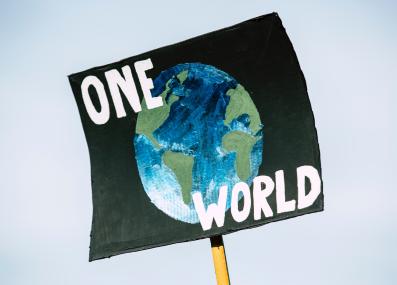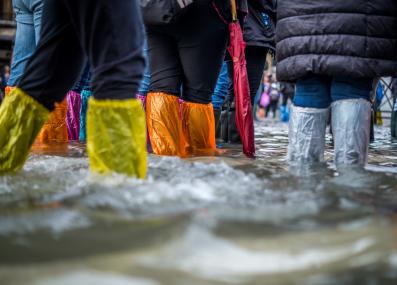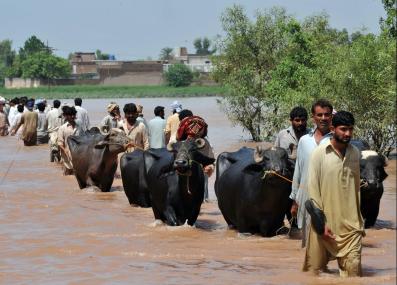Have a question?
Why do some people call climate change an “existential threat”?
The phrase can refer to a literal threat to humanity’s existence, but also to the danger that unchecked climate change can pose to our ways of life and place in the natural world.
Updated November 7, 2023
In recent years, not only climate scientists but also major world leaders—including the U.S. Secretary of Defense, major American presidential candidates, and the United Nations secretary general—have labeled climate change an “existential threat.” But what does an “existential threat” really mean, and why are so many people in positions of responsibility now echoing this phrase?
Kieran Setiya, an MIT professor of philosophy who co-teaches a course on the ethics of climate change, offers a basic and a more nuanced definition. First: In the worst-case scenarios in scientists’ climate models, human-caused climate change is a threat to the continued existence of many species and to human society as we know it. If humans do nothing to slow climate change, then global temperatures may increase by 4.5 degrees Celsius or more by the year 2100.1 This may not sound like much, Setiya says, but “it is quite cataclysmic.” Earth has not been that warm in millions of years, and such temperature spikes in our planet’s history are connected to mass extinction events that killed off a large percentage of species that existed at the time.2
That more literal-minded reading of the phrase “existential threat” may not be the best reflection of the risks of climate change, however. “Even under our most dire predictions, human society is still around,” says Adam Schlosser, the Deputy Director of the MIT Joint Program on the Science and Policy of Global Change and a climate scientist who studies future climate change and its impact on human societies. “I do not personally view this as an extinction issue. But there are going to be unavoidable consequences, and disasters especially for coastal communities, coastal cities, and island nations.”
Which brings us to Setiya’s second definition of an “existential threat.” Even if humanity does reduce greenhouse gas emissions enough to stave off the worst effects of climate change—and learn to adapt to some warming that is already inevitable—Setiya says that climate change still threatens to eradicate a host of human cultures, traditions, and languages. One example he gives is the Inuit peoples who are indigenous to Arctic regions, and whose cold-weather culture is under threat as the amount of ice in polar regions continues to decline. Residents of low-lying islands face an immediate, existential threat to their cultures as rising sea levels could submerge their homelands.
“Their entire way of life is going to be changed,” Setiya says. “And that is going to happen whether or not we get close to the kinds of temperature changes that threaten human extinction. Ways of life that have been stable for hundreds of years or longer will start collapsing.”
To a philosopher like Setiya, the term “existential” has another meaning. It refers to big questions about the meaning of life or humanity’s place in the cosmos, which are often the domain of religion and spirituality. “There's a kind of emotional reaction people have when they think about the totality of human history and our place in our little corner of the universe,” he says. “And I think that sense is brought into play in a disturbing way by climate change.” Already today, human-caused climate change has changed our relationship with the planet we live and depend on, which Setiya says will forever alter the way we feel about human existence.
How the human species responds to this crisis, Setiya says, will not only guide our future but also reveal much about our nature. Climate change could worsen worrying trends such as anti-democracy uprisings and migrant crises as people flee areas that are increasingly hit by natural disasters that will be exacerbated by climate change—rising sea levels, more frequent powerful hurricanes, and droughts that threaten freshwater supplies, for example.
“The question of what happens to the human species,” he says, “is, do we make progress toward a more just and egalitarian future? Or do we end up descending into conflict and sectarianism and nationalism? That is at stake in our reaction to climate change. At stake, in turn, is how we should feel about our own existence as a species. The answer depends very much on whether we respond to crises like this with grace and compassion and justice, or not.”
Submit your own question to Ask MIT Climate
1 Intergovernmental Panel on Climate Change: Climate Change 2023: Synthesis Report. Geneva, Switzerland, 2023, doi:10.59327/IPCC/AR6-9789291691647.
2 For more, read our Ask MIT Climate piece, "Has there been climate change before?"








